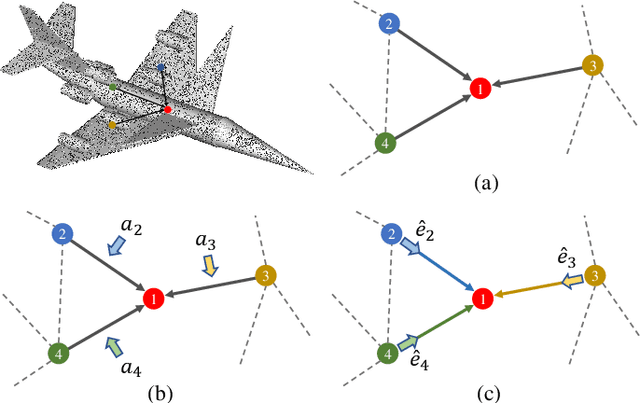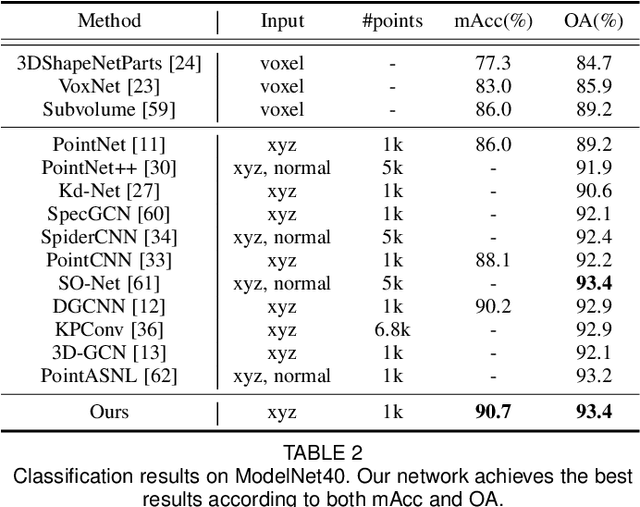Huajian Si
LBF:Learnable Bilateral Filter For Point Cloud Denoising
Oct 28, 2022



Abstract:Bilateral filter (BF) is a fast, lightweight and effective tool for image denoising and well extended to point cloud denoising. However, it often involves continual yet manual parameter adjustment; this inconvenience discounts the efficiency and user experience to obtain satisfied denoising results. We propose LBF, an end-to-end learnable bilateral filtering network for point cloud denoising; to our knowledge, this is the first time. Unlike the conventional BF and its variants that receive the same parameters for a whole point cloud, LBF learns adaptive parameters for each point according its geometric characteristic (e.g., corner, edge, plane), avoiding remnant noise, wrongly-removed geometric details, and distorted shapes. Besides the learnable paradigm of BF, we have two cores to facilitate LBF. First, different from the local BF, LBF possesses a global-scale feature perception ability by exploiting multi-scale patches of each point. Second, LBF formulates a geometry-aware bi-directional projection loss, leading the denoising results to being faithful to their underlying surfaces. Users can apply our LBF without any laborious parameter tuning to achieve the optimal denoising results. Experiments show clear improvements of LBF over its competitors on both synthetic and real-scanned datasets.
AGConv: Adaptive Graph Convolution on 3D Point Clouds
Jun 09, 2022



Abstract:Convolution on 3D point clouds is widely researched yet far from perfect in geometric deep learning. The traditional wisdom of convolution characterises feature correspondences indistinguishably among 3D points, arising an intrinsic limitation of poor distinctive feature learning. In this paper, we propose Adaptive Graph Convolution (AGConv) for wide applications of point cloud analysis. AGConv generates adaptive kernels for points according to their dynamically learned features. Compared with the solution of using fixed/isotropic kernels, AGConv improves the flexibility of point cloud convolutions, effectively and precisely capturing the diverse relations between points from different semantic parts. Unlike the popular attentional weight schemes, AGConv implements the adaptiveness inside the convolution operation instead of simply assigning different weights to the neighboring points. Extensive evaluations clearly show that our method outperforms state-of-the-arts of point cloud classification and segmentation on various benchmark datasets.Meanwhile, AGConv can flexibly serve more point cloud analysis approaches to boost their performance. To validate its flexibility and effectiveness, we explore AGConv-based paradigms of completion, denoising, upsampling, registration and circle extraction, which are comparable or even superior to their competitors. Our code is available at https://github.com/hrzhou2/AdaptConv-master.
 Add to Chrome
Add to Chrome Add to Firefox
Add to Firefox Add to Edge
Add to Edge